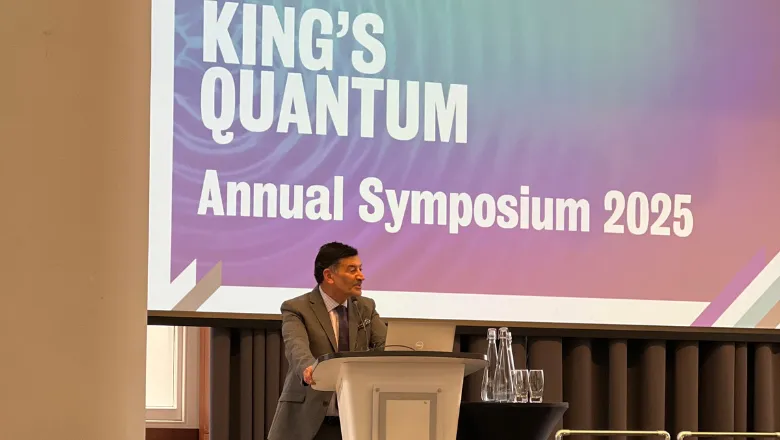
Professor Mohammad Reza Mousavi
Professor of Software Engineering
Research interests
- Computer science
Contact details
Biography
Mohammad Reza Mousavi is a Professor of Software Engineering in the Department of Informatics at King's College London.
Professor Mousavi obtained his PhD from Eindhoven University of Technology, Netherlands. Prior to joining King's in 2021, he held positions at Reykjavik University, Eindhoven University of Technology, Delft University of Technology, Halmstad University, Chalmers University of Technology, and the University of Leicester.
Research interests
- Software Testing
- Autonomous Systems
- Cyber-Physical Systems
- Software Product Lines
- Formal Semantics and Verification
Research

Software Systems
The group studies design, modelling and engineering of software systems.

Climate & sustainability researchers at King’s
King's researchers working across climate and sustainability
News
Great minds gather for King's Quantum Annual Symposium
Top scientific policy leads and industry voices joined a choir of King’s quantum researchers to discuss how to turbocharge the technology.

King's scientists awarded two research grants to make quantum computing more reliable
The projects aim to improve our ability to test these technologies as well as supporting software developers to use them.

Events

King's Experts Series: AI, Quantum and Microtechnologies in Healthcare
For over a decade, King’s engineering researchers have been working side-by-side with healthcare professionals to develop patient-centred innovations.
Please note: this event has passed.
Research

Software Systems
The group studies design, modelling and engineering of software systems.

Climate & sustainability researchers at King’s
King's researchers working across climate and sustainability
News
Great minds gather for King's Quantum Annual Symposium
Top scientific policy leads and industry voices joined a choir of King’s quantum researchers to discuss how to turbocharge the technology.

King's scientists awarded two research grants to make quantum computing more reliable
The projects aim to improve our ability to test these technologies as well as supporting software developers to use them.

Events

King's Experts Series: AI, Quantum and Microtechnologies in Healthcare
For over a decade, King’s engineering researchers have been working side-by-side with healthcare professionals to develop patient-centred innovations.
Please note: this event has passed.
